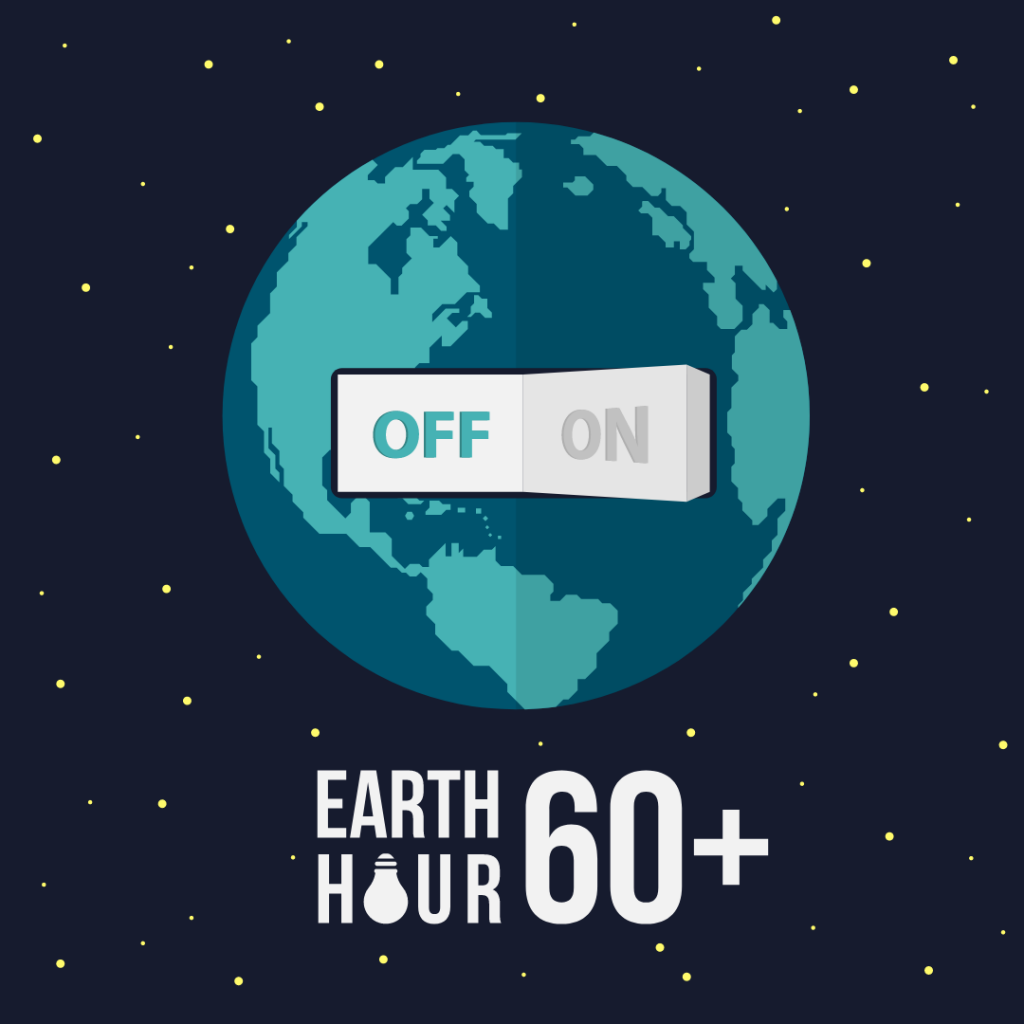Earth Hour in Sydney was launched to raise awareness and encourage everyone to reduce their carbon footprints. As a grassroots movement, it mobilised millions and united countries to act for the environment. It also calls governments to focus on biodiversity as many species are in danger of extinction due to irresponsible human activity.
Despite the global pandemic, people raised their voices in defence of Nature’s future. Even when everyone was fighting to survive and face a post-pandemic world, many have not forgotten the goal of a decarbonised future. In fact, Earth Hour 2020 broke previous records with 4.7 billion online impressions in 190 territories worldwide.
Given how people have embraced the drive for a greener future, here is how Earth Hour led the way for a hopeful, decarbonised future.
-
Earth Hour: A “Fruit of Frustration”
-
Earth Hour’s Significance with Net Zero 2050
-
Decarbonise the Future by Celebrating Earth Hour
-
Ecosave “Switches For Nature” for a Renewable Future
Earth Hour: A “Fruit of Frustration”
Earth Hour Global, WWF’s Executive Director, Andy Ridley, revealed that the idea was “born out of frustration” in 2004. The emerging data about climate change was alarming but they did not have the means to take in the mainstream.
WWF reached out to Leo Burnett for help – Ridley and his team wanted to encourage people to reduce their energy consumption in a creative manner. Leo and WWF came up with the idea about Earth Hour: focusing on the positives of sustainability instead of the long-term damaging effects of climate change.
Presenting it to Fairfax Media’s Phil McLean, they were able to catch the board’s attention and launched a three-month campaign via the Sun Herald and The Sydney Morning Herald. It also coincided with the release of Al Gore’s film, “An Inconvenient Truth”, which was perfect timing to launch such a movement.
In addition, the involvement of PriceWaterhouseCoopers (PWC) and Clover Moore, Sydney’s Lord Mayor, gave Earth Hour the gravity it needed to attract supporters. On March 31, 2007, the first Earth Hour was held in Sydney, Australia. For the first time in over three decades, Kings Cross’ Coca-Cola sign was turned off to commemorate the event. Almost half of Sydney’s population participated in the event.
Earth Hour’s Significance with Net Zero 2050
As a global movement, Earth Hour became a success because it encouraged people not to protest, but rather celebrate the idea of self-policing to contribute to a sustainable and greener future. Instead of going to the streets to protest, people went out to share their common desire to make a difference – by turning off their lights for an hour.
Given the positive action as a collective, global support for the annual event pushed world leaders to study the negative impacts of climate change. It opened their eyes to create policies to address these environmental issues. This time, they listened to the people’s voice and their desire to act on these concerns.
Earth Hour 2012’s “Conservation Challenge” finally pushed the Russian Government to pass its law to protect the country’s seas against oil pollution. The new law states that if the licensed company is involved in an oil spill, it is mandated “to make full restitution to the environment, even if it is its contractor’s fault.” Additional measures for a coordinated response and enabling volunteers to help clean up an oil spill was also included in the new law.
Australia, home to many unique animal species and natural landscapes, is also under threat from the hazards of climate change. The country’s GHG emissions stood at 510.1 tonnes in 2020, despite the economic effects of the global pandemic. However, Australia is pushing the switch to renewable energy as ageing fossil-fuelled power plants are set to be decommissioned by 2040.
Earth Hour’s significance to Net Zero 2050 is it reminds everyone that people are not only the front liners in the war against climate change – we are its primary defence. Individual actions from both the State and its citizens will pave the way for a cleaner future for the next generation.
Decarbonise the Future by Celebrating Earth Hour
Challenges such as the COVID-19 global health pandemic did not stop people from participating in Earth Hour 2020. The fully digital, stay-at-home event garnered support from countries such as Australia, Spain, South Africa, and the Philippines.
This year, the event will cast its virtual spotlight on our home, Earth. Since the UN Conference on Biodiversity will be held later this year, it is the perfect opportunity to voice out our concerns on our planet’s biodiversity. Everyone’s participation counts as a vote to push our world leaders to act on them.
In addition, Earth Hour 2021 aims to fix society’s broken relationship with Nature. People are spending more time with their smart devices, instead of going outdoors and appreciating nature. The current socio-economic models are accelerating climate change and decreasing our defences against global pandemics.
Restoring the balance between Nature and society’s actions is crucial. It is time to focus on Nature to create a decarbonised future. This will not only future proof of the global economy; it will also protect us against future health threats. It is time to slow down for Nature to speed up for Its eventual recovery.
Ecosave “Switches For Nature” for a Renewable Future
Ecosave supports the call to switch to a renewables-based economy. We encourage everyone to make the switch to solar power and other sustainable energy resources or to switch off their lights for just an hour in support of Australia’s goal to decarbonise.
Learn how to future-proof your business and embrace sustainability and innovation in your operations by booking an appointment with us. Call us at 1 300 55 77 64 today!





